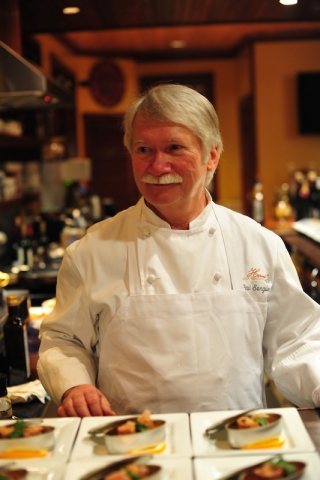
Who Are Your Benchmarks?
04 January 2016“If you’re any good at all, you know you can be better.” Lindsay Buckingham
By Paul Sorgule, MS, ACC
One goal of any business, or in this case academic program, should be to stretch beyond typical measurements of success and reach to become a benchmark for others. Becoming a standard-bearer of excellence should be part of every program director’s playbook.
The process of reaching for this goal includes research and experience with other businesses that strive for and deliver excellence even if their portfolio of activity is not in the same field as yours. Excellence is an act that is timeless and noteworthy as a benchmark for any business.
Who are your benchmarks? How have these business leaders planned for and executed excellence and how could you apply their methods to your program?
As a dean or director you should begin by understanding the business that you are in, the stakeholders who benefit from your business, and the outcomes they expect. This understanding will provide you with a clear path to designing a benchmark program.
As culinary educators, we are in the business of providing a service that can last a lifetime for all who choose to engage with your institution. This service involves the student, parent, alumnus, employer, faculty member, and institutional leadership. The expectations of these stakeholders include, but are not limited to:
- Student culinary skill development
- Building business acumen
- Developing important service attitudes
- Assisting the careerist to define their professional employment track
- Establishing a lifelong learning connection
- Demonstrating value for the money invested in a degree or in hiring and developing graduates
Who might serve as benchmarks for your program and be worthy of serious study? Consider the following as examples:
- Other exceptional culinary programs with a proven track record
- Apple Computer and Google for their commitment to innovation
- Amazon and LL Bean for their “knock your socks off” service and guarantees
- FedEx for trust and dependability
- The Napster and Harley Davidson business models for listening to consumers and breaking the rules of engagement
- Netflix for creative membership strategies
- Ritz Carlton hotels for extraordinary customer service
- Google, SAS Institute, Edward Jones, Wegman’s, and Genetech for making the top 10 companies to work for
- And the growing list of exceptional restaurant companies like Dinex, The Myriad Group, Batali/Bastianich restaurants, Patina, and Panera for their groundbreaking concepts and exceptional delivery
The list could go on and on, but the important point is that once you define your institutional brand, philosophy and mission, do not limit your benchmarks to those who deliver the same products that you deliver. Study those who are successful, committed to excellence, adept at listening and learning, and adopt what you can to your model. In the process you will likely exceed your stakeholder’s expectations.
Here are some exceptional resources that should be part of your weekly reading:
- Fast Company Magazine: www.fastcompany.com
- Magazine: www.inc.com
- The Harvard Business Review: hbr.org
- Nation’s Restaurant News: nrn.com
- Art Culinaire: getartc.com
- Entrepreneur: entrepreneur.com
Paul Sorgule, MS, AAC, president of Harvest America Ventures, a mobile restaurant incubator based in Saranac Lake, N.Y., is the former vice president of New England Culinary Institute and a former dean at Paul Smith’s College. Contact him at This email address is being protected from spambots. You need JavaScript enabled to view it..
